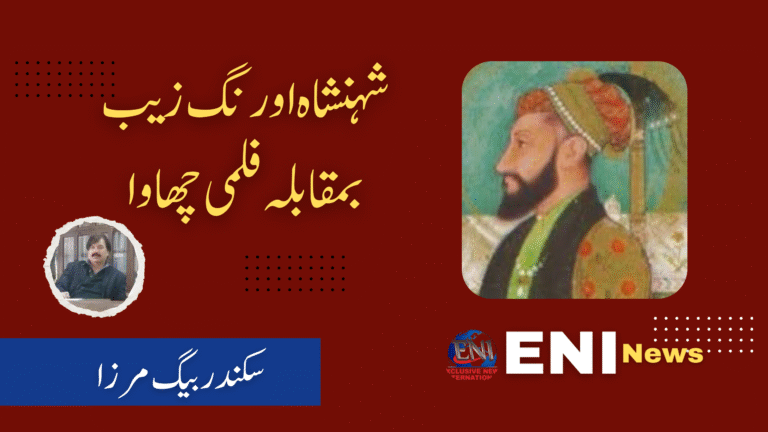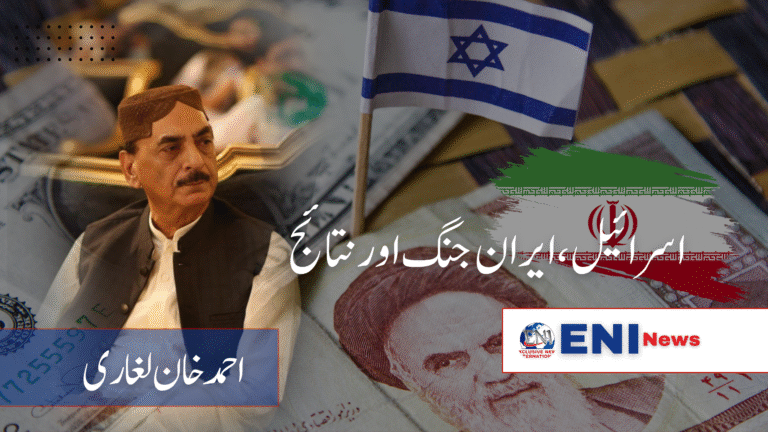POPULIST NARRATIVES OF SLAVERY AND INDEPENDENCE AND CURRENT PAKISTANI DOMESTIC AND FOREIGN POLICY
DR. Rashid Masood Sadiq
At the moment Pakistan is facing many challenges. Political and economic instability, sky high prices of common necessities of life, and fragile and unpopular government at the helm have created unrest among the people across the nation. These challenges have not cropped up overnight. They are the result of a long history of various failures and mismanagement at all levels of the governance. A major part has been played by Pakistani foreign Policy in exacerbating these domestic challenges. The complications and dynamics of amongst the super powers at global level have embroiled Pakistan in a toxic relationship with the Western world from which it is very difficult for it to disengage completely.
China and Russia are jointly shaking up the western world order which has its roots in Westphalia Conference of 1648. Being a close ally of China, Pakistan is facing the consequences of this shake up. Ever since its creation Pakistan has aligned itself with the western camp and tried to maintain good diplomatic and commercial relations with China as well. There is no doubt it is an appropriate time to readjust Pakistan’s foreign policy. Pakistan has three possible options: it can side completely with China and run the risk of making whole western world its enemy, stay in the old camp and deny itself the benefits of moving closer to regional superpowers like China and Russia and finally remain neutral in new tug of political and commercial war. Any of these options has its up and down side.
The world at large is once again in the middle of a New Cold War (NCW) like the one between USA and USSR during the middle decades of twentieth century in which whole western world and most of the countries were standing behind USA after the World War II till the demise of USSR in 1991. That bi-polar world to some extent was good for global political stability because the weaker nations had the choice to join any camp depending upon their visions, needs, and geographical proximity to the warring factions. A US classified document commonly known as Defence Policy Guide (DGP) prepared in era of Bush senior envisions that after annihilation of USSR in Afghanistan USA should not let any nation challenge its unipolar control over the world.
At that time US foreign policy planners envisaged a new plan to implement a radical change in their 40 years old foreign policy for South Asia that was named as De-Hyphenation. In this policy, Pakistan’s status changed from a close ally to future’s enemy and India was elected as a natural ally. The Core motive of this policy was to deal with China as next economic and military challenger and competitor. Pakistan’s close friendship with China, massive political and military influence of Pakistan’s Inter Service Intelligence (ISI) in the area, deep-rooted Pakistan’s enmity with India, its clout in the Islamic world as sole Islamic Atomic Power and important geostrategic location were the considerations which bothered American Planners while finalizing a plan to deal with China.
Pakistan finds itself again at the center of a struggle in which America and its western allies would like to pull Pakistan on their side and China and Russia towards theirs. A high level of political and diplomatic wisdom will be needed to steer Pakistani ship in today’s turbulent global political waters. At the one hand, Pakistani government will be facing public pressure to change the course of its foreign policy while on the other foreign (western) penetration and clout in Pakistani politics would play its part to make the domestic situation worse. Pakistan can defend its interest only if it manages to address the problems of Pakistani people and deal with the fifth columnists with iron hands. Pakistan Army will have to play its much-needed pivotal role to stabilize Pakistan. It can do so by dealing with internal miscreant elements which are supported and funded by enemies of Pakistan from foreign soils and at the same time by watching closely the global political developments and charting Pakistan’s role very carefully in the global geopolitics.
Being an old hostage and close ally of the west, Pakistan cannot disengage America or the whole western world abruptly. Surely America would not like to let this precious prey fly away and become monstrous obstacle to American political objectives in South Asia and the world at large. At the same time China and Russia would keep on luring Pakistan towards the better future by promising and offering various incentives to Pakistani foreign policy planners. Under these circumstances, the best course for Pakistan would be to put its house in order as quickly as possible and try to reap the benefits by engaging both sides without involving in their power struggle at global level. Pakistani planners need to understand that Pakistan can neither afford enmity nor deeper friendship with the world powers locked in a political and military struggle. Accepting any proxy role for either of the factions will have devastating consequences for Pakistan’s economy and security. This policy should have nothing to do with populist narratives of slavery and independence. The wave of toxic populism needs to be suppressed for the better future of Pakistan.
Dr. Rashid Masood Sadiq is Phd in English Literature. Has good understanding of national and international politics. Currently he is professor at Govenment Zamindar Degree College Gujar




